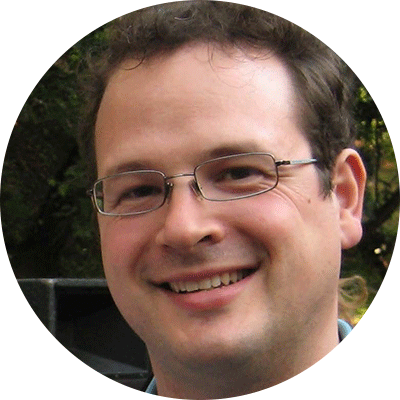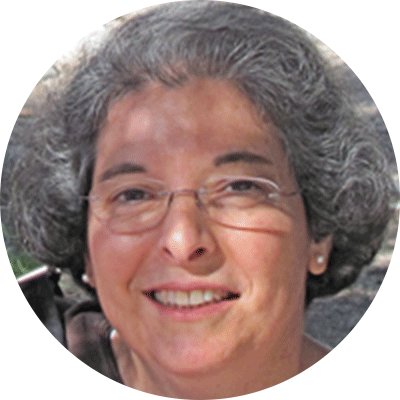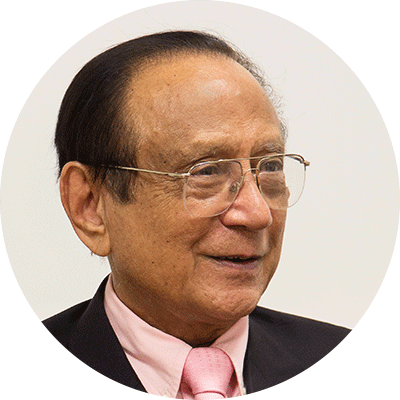An inaugural celebration of world-class research, leadership, mentorship, and teaching in UCLA’s Division of Physical Sciences.
Award categories and recipients
Excellence in Education Award
Our students are the academic leaders of the future. This award recognizes a faculty member making a broad impact on classroom inclusivity and demonstrated learning excellence. Through their instruction, this faculty member inspires their students to collaborate and contribute to an inclusive community and prepares them to become the intellectual leaders of their generation. Both a senate and a non-senate faculty award will be made.
Mahtash Esfandiari, Department of Statistics
Professor, Director of the Statistical Consulting Center, and the Assistant Director of Center for the Teaching of Statistics, at UCLA Department of Statistics. Esfandiari’s areas of interest include statistics education and statistical consulting.
Mahtash Esfandiari is currently on the faculty in UCLA’s Statistics Department and the Director of the Statistical Consulting Center. Her education includes B.S. in chemistry from the American University of Beirut, and Ph.D. in Cognitive Science and Applied Statistics from the University of Illinois in Urbana Champaign.
Through multiple grants from NSF and the UCLA College, Professor Esfandiari has designed instructional strategies that help students become lifelong learners and inspires teams of statistics seniors solve problems presented to them by real clients from the community. As the pioneer of the first diversity class in physical sciences, she trains teams of students comprised of physical and social science majors conduct research on identification of factors that enhance diversity, equity, and inclusion in our campus climate. As faculty at Tehran University, she authored two statistics books that were awarded the “Best Academic Book of the Year.”
Professor Esfandiari has extensive consulting experience, serves on the editorial board of multiple journals, and publishes extensively. She has received multiple honors and awards and served as the president of the Southern Chapter of American Statistical Association.
Will Conley, Department of Mathematics
Professor at UCLA Department of Mathematics. Conley’s primary research interests are representation theory and algebraic number theory.
Will Conley received his Ph.D. in mathematics from UCLA in 2010, and began teaching in the Math Department in 2012. Since 2013, he has played a key role in the development of a highly successful new mathematics course for students in the life sciences.
In 2016, he was hired as a lecturer by the Department. Since then, he has been working to make the Math Department’s introductory calculus sequence more equitable to the diverse array of students that enter UCLA each year.
Leadership Award
This award acknowledges members of the Physical Sciences Division who have made extraordinary contributions through their service to UCLA, or to the academic communities at the national and/or international levels, with special recognition for impact in the promotion of gender equity and diversity. One award will be made to the most deserving undergraduate student, graduate student, post-doctoral fellow, staff, or faculty member.
Robin Garrell
Garrell is the current president of the City University of New York (CUNY) Graduate Center. She is the former Vice Provost for Graduate Education and dean of UCLA’s Graduate Division. As a professor of Chemistry and Biochemistry, her research interests span vibrational spectroscopy and surface chemistry. Her goals are to understand and control the behavior of molecules at liquid-liquid and liquid-solid interfaces.
Robin L. Garrell became president of The Graduate Center, CUNY on August 1, 2020 after serving for nine years as Vice Provost for Graduate Education and Dean of the Graduate Division at UCLA.
Garrell served as UCLA’s principal investigator on three NSF Alliance for Graduate Education and the Professoriate projects to advance the careers of STEM graduate students and postdocs, and led the NSF Integrated Graduate Education and Research Training (IGERT) Materials Training Program. Garrell previously served as Chair of the UCLA Academic Senate and College Faculty Executive Committee. External leadership has included serving served as President of the Society for Applied Spectroscopy, as well as chairing the NIH EBIT study section, the AAAS Committee on Opportunities in Science, and the Educational Testing Service TOEFL Board.
Garrell currently serves as an elected commissioner on the Western Association of Schools and Colleges Senior Colleges and University Commission. She is a Fellow of the American Association for the Advancement of Science (AAAS) and Society for Applied Spectroscopy, and received the UCLA Distinguished Teaching Award Gold Shield Faculty Prize.
Mentorship Award
This award will recognize a faculty member who has demonstrated a commitment to and success in mentoring research students from diverse backgrounds. Through their work with students at all levels (undergraduate, graduate, and postdoctoral), this faculty member establishes and nurtures inclusion, and inspires creativity, perseverance, and other positive qualities that have led students to leadership positions in industry, government, and academia.
Stuart Brown – Department of Physics & Astronomy
Brown is a Professor of Physics & Astronomy, he graduated from UCLA with his Ph.D. in ’88. His research interests are roles of dimensionality, electronic correlations, and disorder in the properties of electronic materials.
Stuart Brown is a professor of Physics and Astronomy at UCLA, where he has been a faculty member since 1992. Prior to that, he was a Director’s Postdoctoral Fellow at Los Alamos National Laboratory, and Assistant Professor of Physics at the University of Florida. He received his Ph. D. in physics from UCLA in 1988, and is a Fellow of the American Physical Society.
Professor Brown is a condensed matter experimentalist whose research focus is mostly on the phases and properties of correlated electron systems, with particular focus on problems in unconventional superconductivity. The primary research tool of his UCLA laboratory is magnetic resonance under extreme conditions, including low temperatures, high magnetic fields, and other non-thermal tuning parameters such as pressure or strain.
Vassilis Angelopoulos – Department of Earth, Planetary, and Space Sciences
Angelopoulos is a professor of Earth, Planetary, and Space Sciences, and is part of the Instiute of Geophysics and Planetary Physics at UCLA. Professor Angelopoulos’s current research aims to understand how particles are accelerated in Earth’s magnetosphere.
Prof. Angelopoulos’ primary area of scientific research is to understand how particles are accelerated in Earth’s magnetosphere, how the upper atmosphere and ionosphere respond to space currents, and how the lunar environment is affected by its interaction with the solar wind.
As Principal Investigator of NASA’s THEMIS and ARTEMIS missions he has led the development of a fleet of five satellites and twenty ground-based observatories, and is currently leading the scientific analysis phase of those missions.
At UCLA he proposed, oversaw the development and successful launch and now the operation of two ELFIN CubeSats. These were the first satellites built entirely at UCLA, primarily by students, and are currently in good health in polar-orbit around Earth. He is currently leading the science analysis phase of that mission, under NASA and NSF funding. More than 250 undergraduates have been trained on ELFIN under his team’s mentorship over the last six years.
Physical Sciences Outstanding Discovery Award
Physical Sciences faculty are leading their research fields with contributions from the most creative, productive, and talented students, postdoctoral fellows, and researchers who come to UCLA from all over the world. This award recognizes the greatest research discovery made by a Physical Sciences faculty member and their team in 2018-2019.

Tommaso Treu – Department of Physics & Astronomy
Treu is a professor in the department of Physics & Astronomy, member of the Hubble Telescope observing team. Treu’s research interests include galaxy formation and evolution, and co-evolution of spheroids and black-holes.
Tommaso Treu is a professor of Physics and Astronomy. He holds a Ph.D. in Physics from the Scuola Normale Superiore in Pisa, Italy. His research interests include cosmology, galaxy formation and evolution, and co-evolution of spheroids and black holes.
Treu has received many awards including the Pierce Prize from the American Astronomical Society, the Newcomb Cleveland Prize from the American Association for the Advancement of Science, a Sloan Research Fellowship, and a Packard Research Fellowship.
Centennial Luminary Alumni Awards
The UCLA Physical Sciences departments are among the best in the world thanks to the strong support from successful alumni whose careers exemplify the impact of research and education in the division.
In recognition of their professional accomplishments, a Centennial Luminary Award is being presented to one alumna/alumnus from each of our six academic departments and the Institute of the Environment and Sustainability.

Atmospheric and Oceanic Sciences Luminary Award
Leopold Andreoli – Ph.D. Atmospheric Sciences ’80
Dr. Leopold Andreoli has a B.S. in Physics from St Joseph’s College, Philadelphia, where he was also a Distinguished Military Graduate and Commissioned a Second Lieutenant, United States Air Force. He was assigned to meteorology forecast training at NYU’s Bronx campus and then on to Boston where he was assigned to the Air Force Cambridge Research Laboratories where he began his interest in ionospheric physics.
The Air Force then assigned Leo to The University of Michigan where he received his MS in Aeronomy and Planetary Atmospheres in 1971. Five years followed with three tours: Colorado Springs supporting Air Force High Frequency ionospheric forward scatter interrogation of the Soviet Union; Los Angeles developing space sensors on the Defense Meteorological Satellite Program; and, a year on Shemya Island in the Aleutians commanding the largest Air Force weather site with observers, forecasters, rocket sonde and balloon sound crews.
Captain Andreoli was then assigned by the Air Force to UCLA where he enrolled in the Department of Atmospheric Science from the fall of 1976 through the fall of 1979. He earned his Ph.D. in Atmospheric Science. Leo published his Dissertation (Relativistic Electron Precipitation) and presented it at the American Geophysical Union Annual Meeting in early 1980.
Leo was then assigned to satellite programs higher than Top Secret for the next 14 years. It can now be said he worked in the Secretary of the Air Force Special Projects, a joint program with the CIA and Navy known as the National Reconnaissance Office to develop, launch and operated intelligence satellites. His specialty was remote sensing from space of land and ocean camouflage, concealment, and deception targets through various atmospheric environments. Before his retirement in late 1994 after 27 years as a Colonel, he was asked by the regular USAF to lead a special program for the Defense Advanced Research Projects Agency in which he developed a quick reaction satellite (DARPSAT) and launch vehicle (Taurus) in 24 months which was successfully launched from a makeshift launch platform on the sandy beach in central California in spring 1994.
He began work immediately for TRW where he was again involved in classified programs. When TRW became Northrop Grumman Corporation, Leo became interested in their Global Hawk, a large Air Force high altitude, jet powered drone capable of collecting high resolution intelligence for greater than 30 hours duration. He saw that Global Hawk was a natural vehicle to solve the needed long dwell measurements in the eye of hurricanes. He was instrumental in developing this concept and the transition of surplus vehicles to NASA for hurricane observation. When not in hurricane season, he developed a concept to have these vehicles stationed on the west coast to support fire season with high altitude surveillance and communication relay to fire fighters in valleys where visibility and communications are difficult.
Leo was then appointed Director/Chief Scientist for Northrop Grumman Aerospace where he led a science team developing earth and upper atmosphere facing instruments for the National Polar Orbiting Environmental Satellite System (the next weather satellite). He then led the science team developing the James Webb Space telescope (a 6.5 meter follow on to Hubble to look back to the first solar systems developed after the Big Bang) scheduled for launch later this year. Leo retired in fall 2010.

Statistics Luminary Award
Amy Braverman – M.A. Mathematics ’92, Ph.D. Statistics ‘99
Dr. Braverman is Principal Statistician at the Jet Propulsion Laboratory in Pasadena, California. She received her doctorate in statistics from the University of California, Los Angeles (UCLA), a masters in Mathematics from UCLA, and a B.A. degree in economics from Swarthmore College, Swarthmore, PA, in 1982.
Her research interests include information-theoretic approaches for the analysis of massive data sets, data fusion methods for combining heterogeneous, spatial and spatio-temporal data, and statistical methods for the evaluation and diagnosis of climate models, particularly by comparison to observational data. Dr. Braverman focuses on the use of remote sensing data, and has designed and analyzed new Level 3 data products for MISR and other NASA missions.

Mathematics Luminary Award
Kirk Dunn– B.A. Mathematics/Applied Science ’83
Kirk Dunn is the COO of Cloudera where he uses his diversified range of technology engineering, marketing, sales and management experience to oversee Cloudera’s business operations. During his nearly 20-year career, Kirk has worked extensively with established companies, high-growth organizations and Fortune 200 accounts, successfully building strategic sales and product divisions, and leading international expansions.
Kirk served as the CEO of PowerFile, Inc, which was successfully sold to Hitachi LG Data Storage, and was CEO of Bang Networks Inc. Prior to joining Bang Networks, Kirk served as VP of North American Field Operations at Inktomi. He came to Inktomi from Network Equipment Technologies, Inc. (NET), where he held executive positions in sales, marketing and professional services. Kirk also worked for IBM in senior sales positions. He holds a B.A. in mathematics and applied sciences from the University of California, Los Angeles.
Chemistry & Biochemistry Luminary Award
Myung Ki “Mike” Hong – B.S. Chemistry ’59
Dr. Myung Ki Hong earned a B.S. degree in chemistry from UCLA in 1959. Renowned for his expertise in resin and coatings, Dr. Hong founded Dura Coat Products, Inc. in 1986, where his first product breakthrough was a water-based formulation that was both effective and eco-friendly. In addition to facilities in California and Alabama, the company distributes its technology through licensing agreements with companies all around the world. He is in the process of selling this company and is remaining on for a period of time for consulting.
He is deeply involved with philanthropic and civic causes in Southern California. After the civil unrest in Los Angeles in 1992, he committed himself to promoting community harmony by promoting a better understanding of cultural diversity. In 2002, he established the Bright World Foundation, based on a translation of his Korean name, Myung Ki (‘bright place’), to foster a sense of optimism in the world and inspire the human spirit.
In 2015, Dr. Hong was selected for the 2015 UCLA Chemistry & Biochemistry Alumni Award. When he accepted the award, he also presented the commencement address at the UCLA Chemistry & Biochemistry graduation ceremony. He previously served on the UCLA Foundation Board of Governors.
Earth, Planetary, and Space Sciences Luminary Award
Nathan Myrhvold – B.A. Mathematics ’79, M.S. Geophysics/Space Physics ‘79
Dr. Nathan Myhrvold is a prominent scientist, technologist, inventor, author, and food photographer. In a 14-year tenure at Microsoft, Myhrvold led advanced technology and business development groups, founded Microsoft Research, managed an R&D budget of $2 billion, and served as the company’s chief strategist and chief technology officer.
Myhrvold previously had cofounded Dynamical Systems Research, a software company, and worked as a postdoctoral fellow in the Department of Applied Mathematics and Theoretical Physics at Cambridge University, where his research with Professor Stephen Hawking centered on quantum theories of gravitation. More recently, Myhrvold has published peer-reviewed research in planetary science on asteroids and missions to identify near-Earth objects, in paleontology on dinosaur metabolism and growth rates, and in climate science on global transitions to low-emission energy systems.
In 2000, after retiring from Microsoft, Myhrvold founded Intellectual Ventures (IV), which he leads as CEO and one of its most prolific inventors, with more than 850 U.S. patents awarded. Myhrvold is vice chairman of TerraPower, a pioneer in advanced nuclear energy. He also has served as an adviser to eight startup companies that IV has launched to commercialize advanced metamaterials technologies. Along with Bill Gates, Myhrvold created Global Good to invent technologies for global health and development, and the Institute for Disease Modeling, which has become a world leader in computational epidemiology.
Food and cooking have been passions of Myhrvold since childhood. While at Microsoft, he worked nights at a Seattle restaurant with chef Thierry Rautureau and then obtained a culinary degree at Ecole De La Varenne in Burgundy. In 2007, he founded The Cooking Lab, a culinary research laboratory, photo studio, and publishing company. In 2011, he published a five-volume, 2,500-page cookbook, Modernist Cuisine: The Art and Science of Cooking. That book and its 2017 sequel of even greater length, Modernist Bread, both won James Beard cookbook awards. His one-volume book Modernist Cuisine at Home (2012) has been translated into seven languages. Building on his 2013 book The Photography of Modernist Cuisine, Myhrvold opened a gallery of his food photography in Las Vegas in 2017. Modernist Cuisine Galleries have since opened in New Orleans, Seattle, and La Jolla.
Myhrvold holds a doctorate in theoretical and mathematical physics, as well as a master’s degree in mathematical economics, from Princeton University. His master’s degree in geophysics and space physics, as well as his bachelor’s degree in mathematics, are from the University of California, Los Angeles.
Physics & Astronomy Luminary Award
Howard Preston – B.S. Physics ’65, Ph.D. Physics ’74
Howard Preston is President of Preston Cinema Systems, a motion picture camera equipment company based in Santa Monica. Preston Cinema Systems creates and sells products to control camera and lens functions through a wireless network.
In 1984 Howard received a Technical Achievement Award and in 2006 he received a Scientific and Engineering Award, both from the Academy of Motion Picture Arts & Sciences.
Howard earned his bachelor’s degree and his PhD in physics from UCLA. He serves on the UCLA Physical Sciences board of advisors, the Galactic Center Group board, and the UCLA Physical Sciences Entrepreneurship & Innovation Fund.

Environment and Sustainability Award
Ben Schwegler – D.Env., Environmental Science and Engineering ’99
Benedict Schwegler is retired senior vice president and chief scientist, Walt Disney Imagineering R&D. He is currently Chief Scientist at Engie China Research Lab and an adjunct professor at Stanford University. He holds a bachelor’s degree in biology, a master’s in a joint program of ecology and chemical engineering from the University of Michigan, and a doctorate in environmental engineering and science from UCLA.
Ben leads an international team of industry and academic researchers exploring fundamental relationships of urban physical size to the efficiency of infrastructure supporting those urban developments. This research played out in Disney’s theme park in China, and in the team’s collaboration with infrastructure development in Shanghai and Wuhan, China.
He taught a four-year course at Stanford on adaptation to climate change, with a focus on ports and harbors. He holds patents for a method to integrate building physics and occupant behavior in energy models, a 4D construction simulation tool, and surface water control systems for theme parks in Hong Kong, Tokyo, and Paris.
The Centennial Visionary Award was created to recognize one individual who has made extraordinary contributions through their service to UCLA and whose career exemplifies the impact of research and education across several areas of the Division of Physical Sciences.

Centennial Visionary Award
The award is being presented to Mani Bhaumik, whose time as a postdoctoral researcher at UCLA led him to become one of the university and division’s strongest supporters.
Among many other expressions of support for UCLA and the Division of Physical Sciences, Bhaumik’s impact includes:
- $11 million gift establishes Mani L. Bhaumik Institute for Theoretical Physics at UCLA
UCLA receives $2 million from physicist–philanthropist Mani Bhaumik
- Annual support for Exploring Your Universe, our free day of science fun for the whole family and one of the largest science outreach events in Los Angeles.
Mani Bhaumik is a physicist, author, lecturer, entrepreneur, and philanthropist. He is the President of Cosmogenetics, Inc. His early contributions to laser technology are exemplified by the development of the exciter laser at the Northrop Corporation Research and Technology Center in Los Angeles. As the team leader, Mani announced the successful demonstration of the world’s first efficient excimer laser at the meeting of the Optical Society of America in May 1973. Subsequently, it found extensive use as the type of laser that made possible the immensely popular Lasik corrective eye surgery, eliminating the need for glasses or contact lenses in many cases.
In recognition of his pioneering research in high-energy lasers and new laser systems, Mani has been elected by his peers to fellowships in the Institute of Electrical and Electronics Engineers as well as of the American Physical Society. Mani’s current interest is in sharing with the public the advances in quantum physics and cosmology and their implications for both material and spiritual development.
Mani received his bachelor’s degree from Scottish Church College, his master’s degree from the University of Calcutta, and his Ph.D. in physics from the Indian Institute of Technology at Kharagpore. He was a recipient of the prestigious Sloan Foundation Fellowship for his postdoctoral research at UCLA from 1959 to 1961.
Read the awards press release in the UCLA Newsroom.
Tags: News
